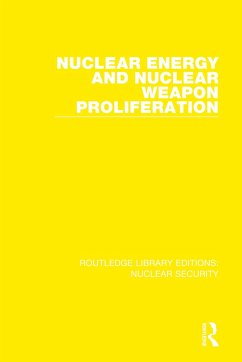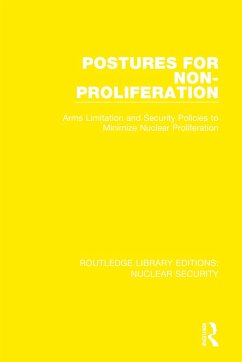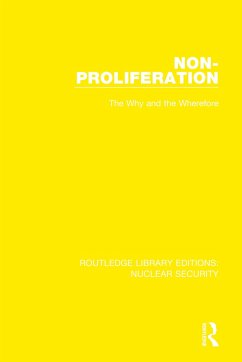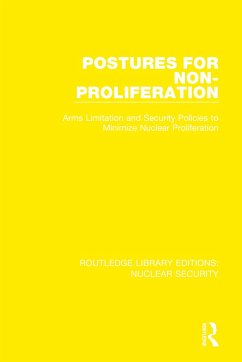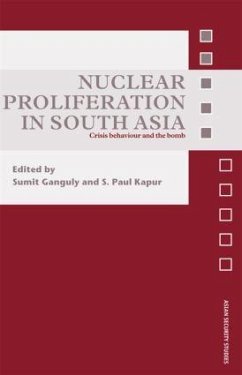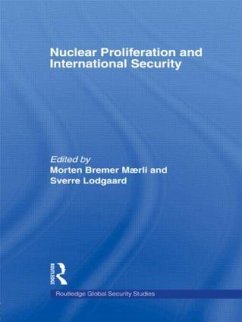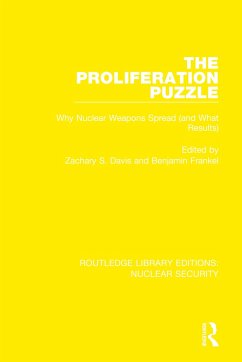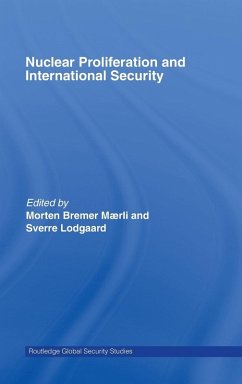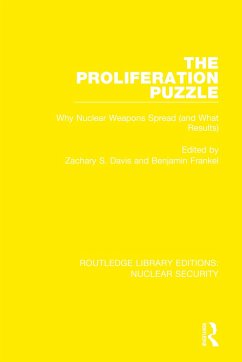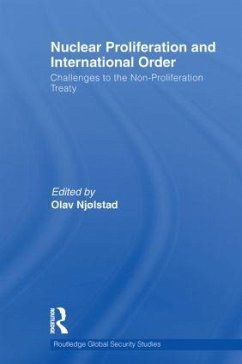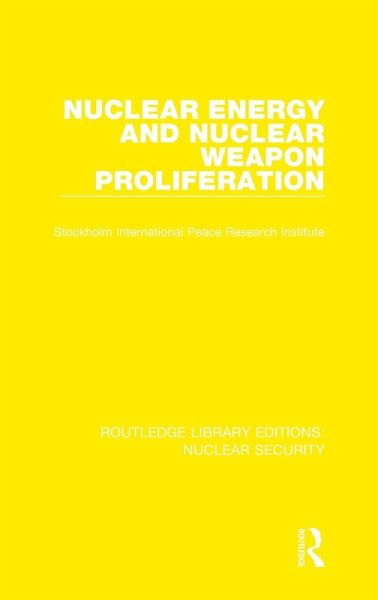
Nuclear Energy and Nuclear Weapon Proliferation
Versandkostenfrei!
Versandfertig in 1-2 Wochen
170,99 €
inkl. MwSt.
Weitere Ausgaben:

PAYBACK Punkte
85 °P sammeln!
In mid-1980 a second conference for the review of the Non-Proliferation Treaty (NPT) would take place in Geneva. Originally published in 1979, this book on nuclear energy and nuclear weapon proliferation contains the papers presented at the symposium and reflects the discussions at the meeting.




